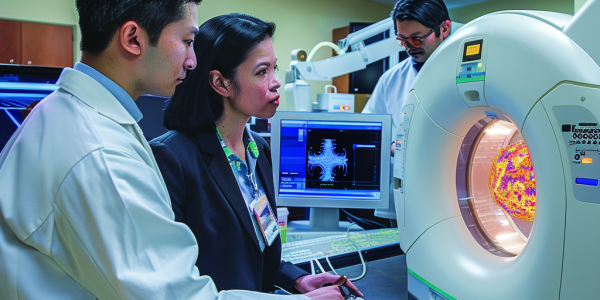Microsoft to Transition 365 Enterprise Users to New Outlook in April 2026
Starting April 2026, Microsoft 365 Enterprise users will transition from Classic Outlook to the New Outlook for Windows, enhancing user experience with modern features. This automatic migration will allow users to revert back to Classic Outlook if desired, ensuring a seamless transition. Microsoft encourages feedback to optimize the New Outlook, which includes innovative tools like Copilot functionalities and customizable theming options, aimed at creating a more efficient workspace.
Bajau Tribe: The Sea Nomads with Extraordinary Diving Genetics
Discover the remarkable diving abilities of the Bajau tribe, Indonesia’s sea nomads, who possess a unique genetic mutation enabling them to dive deeper and longer than average humans. Learn how their enlarged spleen and traditional techniques allow them to thrive in ocean depths, providing insights into human evolution and adaptability.
Ford Mustang GTD Sets New Nurburgring Record, Outperforming Porsche 911 GT3
Ford’s Mustang GTD has shattered records at the Nurburgring, completing the circuit in an astonishing 6 minutes and 57 seconds, outperforming the Porsche 911 GT3. This milestone highlights Ford’s dedication to performance, showcasing the Mustang GTD’s powerful 5.2-liter supercharged V8 engine and advanced engineering. As anticipation builds for further testing, the Mustang GTD sets a new standard for American performance cars, proving its capability to compete with iconic European brands.
Revolutionary NanoGripper Device Targets Viruses Using DNA Origami
Researchers at the University of Illinois Urbana-Champaign have developed the NanoGripper, a revolutionary DNA origami device designed to target and neutralize virus particles, including those linked to COVID-19. This innovative technology not only showcases the potential of nanotechnology in medicine but also promises rapid virus detection and targeted antiviral treatments, paving the way for advancements in public health and disease prevention.
New Study Reveals Glioblastoma’s Integration into Brain Circuits
Recent research from Heidelberg University reveals new insights into glioblastoma, highlighting how tumor cells integrate into brain circuits. This groundbreaking study, published in Cell, uncovers the complex interactions between aggressive brain tumors and nerve cells, paving the way for innovative therapies. Led by Dr. Varun Venkataramani, the research utilized modified rabies viruses to track glioblastoma cell behavior, emphasizing the need for ongoing studies to improve treatment outcomes for this challenging brain cancer.
Augusta Employment Hits Historic High Despite Hurricane Helene
In the aftermath of Hurricane Helene, the Augusta area has demonstrated remarkable resilience with a record employment rate of 238,000, the highest since the late 1990s. Despite challenges, sectors like hospitality thrived, while others faced setbacks. Insights from economist Dr. Simon Medcalfe reveal the potential for recovery and economic growth in the region, highlighting the adaptability of the local workforce and the importance of community resilience.
Urgent Investigation Launched After Hundreds of Dangerous Virus Vials Go Missing in Australia
A serious biosecurity breach has occurred in Australia, with hundreds of vials containing dangerous live viruses, including Hendra, Hantavirus, and Lyssavirus, going missing from a laboratory. Queensland Health Minister Tim Nicholls revealed that 323 samples disappeared in 2021, raising urgent concerns about public health and safety. The investigation is focused on the circumstances surrounding the storage and transfer of these samples, emphasizing the need for stringent biosecurity measures to prevent future incidents.
Breakthrough MRI Technology Predicts Ovarian Cancer Treatment Response
A groundbreaking study from the University of Cambridge reveals a revolutionary MRI-based imaging technology, hyperpolarized carbon-13 imaging, that can predict ovarian cancer tumor responses to treatment. This innovative method enhances MRI signals by up to 10,000 times, enabling rapid assessments of treatment effectiveness, distinguishing between tumor subtypes, and personalizing cancer care. With the ability to evaluate responses to chemotherapy within 48 hours, this advancement promises to transform ovarian cancer treatment and improve patient outcomes.
Rising Stroke Incidence Among Young Adults: Urgent Need for Awareness and Prevention
The alarming rise in brain strokes among younger adults aged 30 to 40, increasing from 5% to 10-15%, highlights the urgent need for awareness and preventive measures. Factors such as poor diet, lack of exercise, and stress contribute to this trend. Recognizing stroke symptoms early and adopting healthier lifestyles can significantly reduce risks. Health authorities and the Indian Stroke Association are advocating for education and lifestyle changes to combat this growing health concern.
Groundbreaking Stem Cell Research Offers New Insights into Aging and Longevity
Recent advancements in stem cell research have provided new insights into aging and age-related diseases. Researchers at Boston University have extracted and reprogrammed stem cells from ‘superagers’—centenarians known for their remarkable resilience against diseases like Alzheimer’s. This groundbreaking work aims to uncover the biological mechanisms behind longevity, potentially leading to interventions that enhance the quality of life as we age. With an open-access approach, the study’s findings promise to benefit the global scientific community and offer hope for healthier aging in future generations.
























